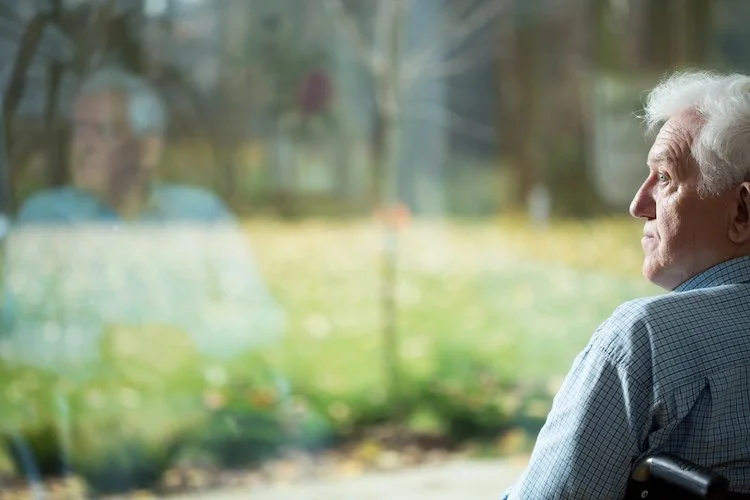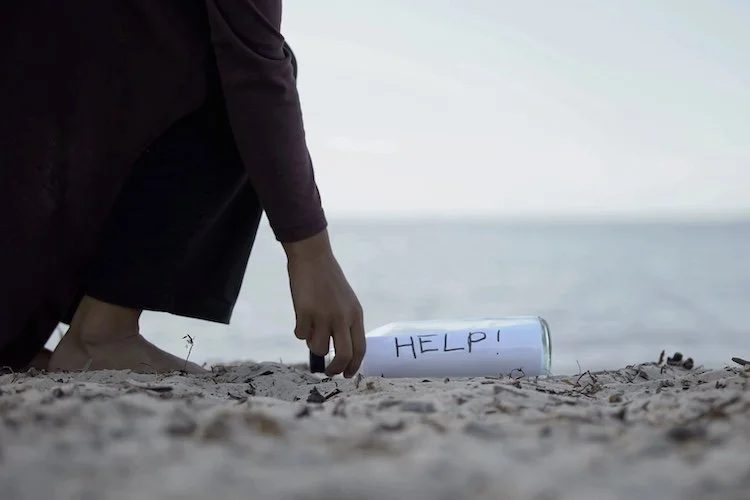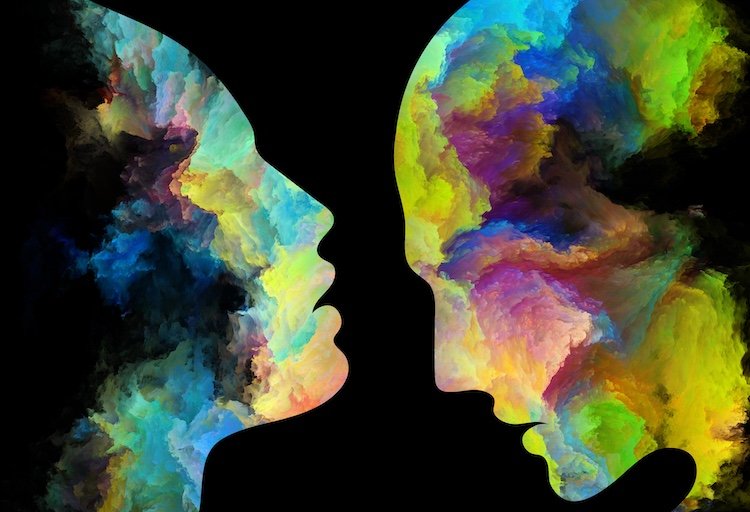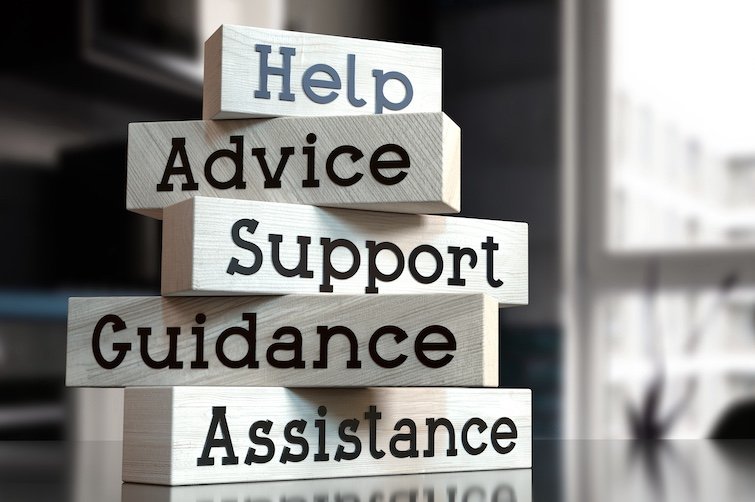
Navigating the Emotional Landscape of Caring for Aging Parents: A Journey of Conflict and Compassion
Caring for aging parents can activate unresolved trauma, grief, guilt, and resentment—especially when earlier relationships were strained or unhealthy. Setting emotional boundaries, processing grief, redefining responsibility, and cultivating self-compassion can help protect your own well-being as you shift into the role of caregiver.

Finding Hope in a Troubling World: Navigating Feelings of Helplessness
Feeling like today’s world is spinning out of control? You’re not alone. When faced with circumstances difficult to grasp, let alone fix, it’s normal to experience helplessness, frustration, and despair. Taking small actions, connecting with others, and seeking joy can pave the path to renewed hope.

How to Support Others … When There’s Nothing Left in Your Tank
When someone you care about is suffering, you want to be there for them. But giving them the support they need can be challenging, especially if your emotional batteries are drained. By acknowledging your limits, setting boundaries, and engaging in self-care activities, you can maintain healthy connections while honoring your own emotional well-being.

Digital Comfort: How Youth and Young Adults Are Using AI for Mental Health and the Associated Risks
AI is an enticing option for digital-native adolescents seeking mental health support. Not only does it offer 24/7 convenience, it also affords a comfortable layer of anonymity. While chatbots and similar technologies can be beneficial to some, over-reliance on them can pose serious risks and dangers for others.

End of Summer and Back to School: Supporting Children, Parents, and Emerging Adults Through Transitions
As summer draws to a close, back-to-school season is in full swing. Depending on your child’s age and developmental phase, along with many other factors impacting their emotional wellbeing, the beginning of a new school year can look different from grade to grade. Your understanding and support can pave the way to a smooth transition.

Echoes of Silence: Unraveling the Complex Tie Between Childhood Trauma and Adult Loneliness
The journey from childhood trauma and PTSD to an adulthood marked by loneliness reveals a profound intersection between mental health challenges and personal history. Understanding this complex relationship is the first step toward healing.

Resilience: Developing Strength in the Face of Challenges
Life isn’t perfect. Situations don’t always go as planned. Bad things happen. Resilience prevents getting consumed by them. It allows you to find the hope, strength, and tools to move forward despite them. Fortunately, there are many steps we can take to develop, build, and maintain resilience.

The Impact of Childhood Trauma on Identity: Shifting the Narrative
Childhood trauma can have profound effects on an individual’s identity development, shaping how they see themselves and relate to the world. While the common narrative focuses on the negative consequences of such experiences, recent research highlights a more nuanced perspective that facilitates a path to healing.

Navigating Relationships Across Political Divides
Today’s political landscape has the potential to strain even our closest relationships, especially with people whose ideology differs from ours. By approaching these often emotionally-charged conversations with curiosity and openness, we can foster an understanding that helps bridge the divides—and remain connected to those with different political perspectives.

Emerging Adulthood: Supporting Your Child’s Independence
Emerging adulthood is a transformative phase in a young adult’s life that poses unique challenges and opportunities. By understanding this critical stage, maintaining open communication, and providing supportive yet respectful guidance, parents can help their children thrive during this exciting journey toward independence.

The Emotional Landscape of a Child Coming Out: Navigating Family Dynamics
Navigating a child's coming-out journey can be an emotional and transformative experience for both the child and their parents. This journey is often complex, filled with emotions, challenges, and opportunities for growth. To cultivate a supportive and loving relationship, it’s important for parents to process their own feelings while gaining a better understanding of their child’s emotional needs.

Taming Your Financial Anxiety
Economic uncertainty, inflation, and a host of global events have triggered a rise in financial anxiety. Fear of job loss, rising living costs, and potential recessions have left many individuals and families feeling vulnerable and overwhelmed. Taking a proactive and multifaceted approach to managing this anxiety can foster both emotional resilience and practical stability.

The Entanglement of Hope and Fear in Couple Therapy
We are drawn to our romantic partners out of a largely unconscious desire to satisfy incomplete developmental needs, hoping that our self-actualization will be supported while fearing it will be thwarted. One partner’s core longings and dreads combine with the other’s in complex and sometimes mutually intensifying ways. Therapy can help a couple explore and work through such hope-fear entanglements so as to become better emotionally attuned.

Navigating Change: Can I Give You Some Advice?
Change, no matter its nature, can be challenging enough. Often, well-meaning advice from family and friends can leave you feeling misunderstood, adding to your frustration. These strategies can empower you to find ways of coping with change that will work for you.

Does My Therapist See a Therapist?
A strong therapeutic relationship is the key to successful therapy. The therapist is not a detached observer but an essential part of the process. Attending their own therapy increases a therapist’s capacity to experience and understand emotions so they can share a very human connection with their clients.

Childhood Trauma: Lifelong Implications (but Not a Lifetime Sentence)
Childhood trauma can have profound, long-term effects on a person’s mental and physical well-being, increasing the risk of mental health issues and chronic disease in adulthood. It’s time to recognize the lasting implications of childhood trauma, do away with “victim-shaming,” and provide support to individuals who experienced trauma in their formative years.

“Why Can’t I Let It Go?” When Trivial Arguments Trigger Strong Emotions
Fights between spouses or partners often center on seemingly insignificant disagreements. These conflicts can quickly spiral downward. In these situations, it can be helpful to explore what’s going on beneath the surface.

Little t Trauma: The Cumulative Effect of Everyday Distress
Little t trauma, as opposed to big T trauma, refers to an accumulation of smaller distressing events or circumstances that can profoundly impact an individual’s mental health. Recognizing and fully processing little t trauma can help loosen its hold.

Late ADHD Diagnosis in Adults: Challenges and Treatment Options
Receiving a first-time ADHD diagnosis as an adult poses a unique set of potential challenges. Among them is determining appropriate treatment beyond (or in place of) medication. Therapy provides a safe space for adults to holistically view their ADHD and learn to manage its symptoms.

The Link Between Food Addiction and Body Image
Do you often feel like food controls you—versus the other way around? If you struggle with overeating, emotional eating, or wafting from diet to diet, you may believe that you have a food addiction. However, these symptoms can actually result from an eating disorder. Understanding the relationship between self-perceived food addiction, body image, and disordered eating is key to choosing a treatment option that’s right for you.

